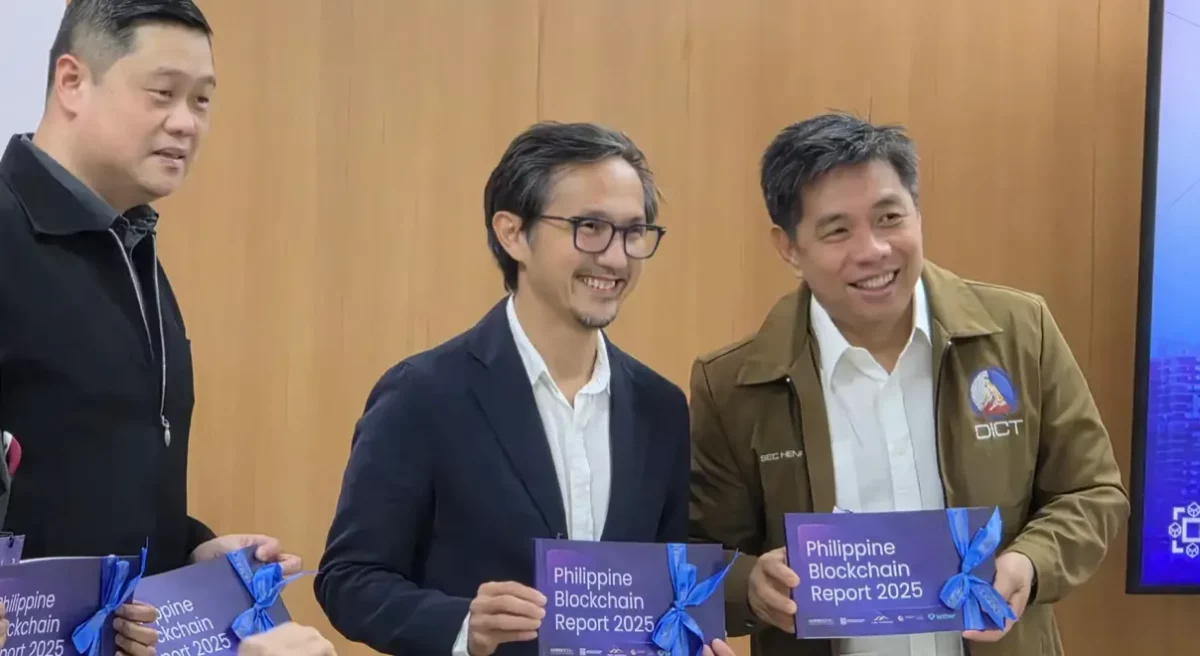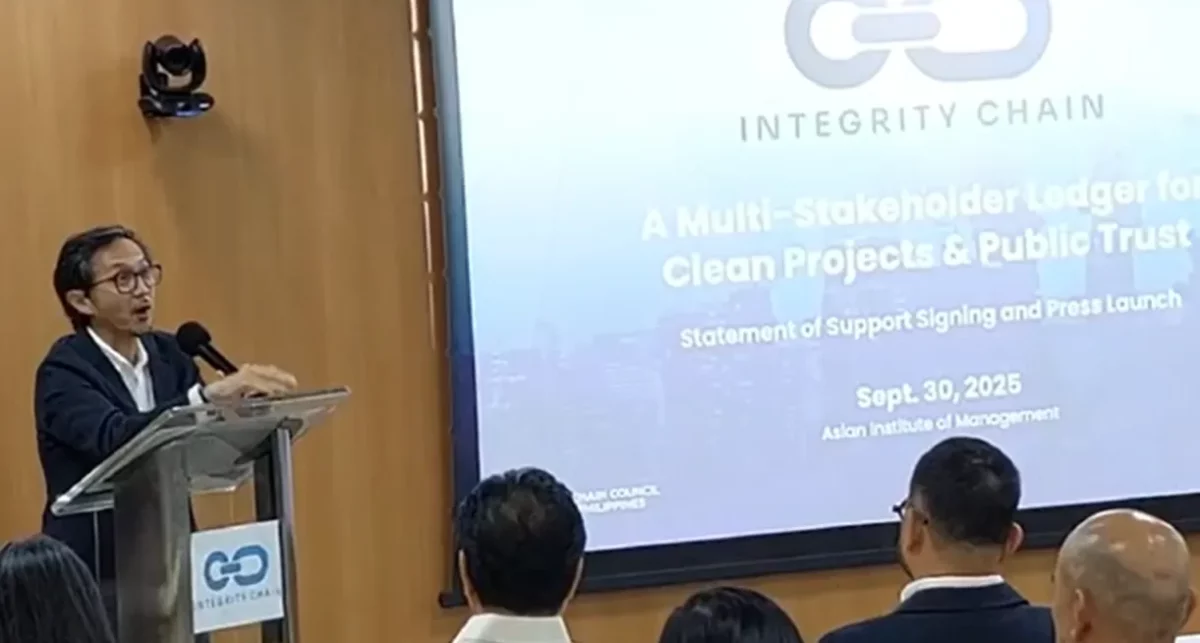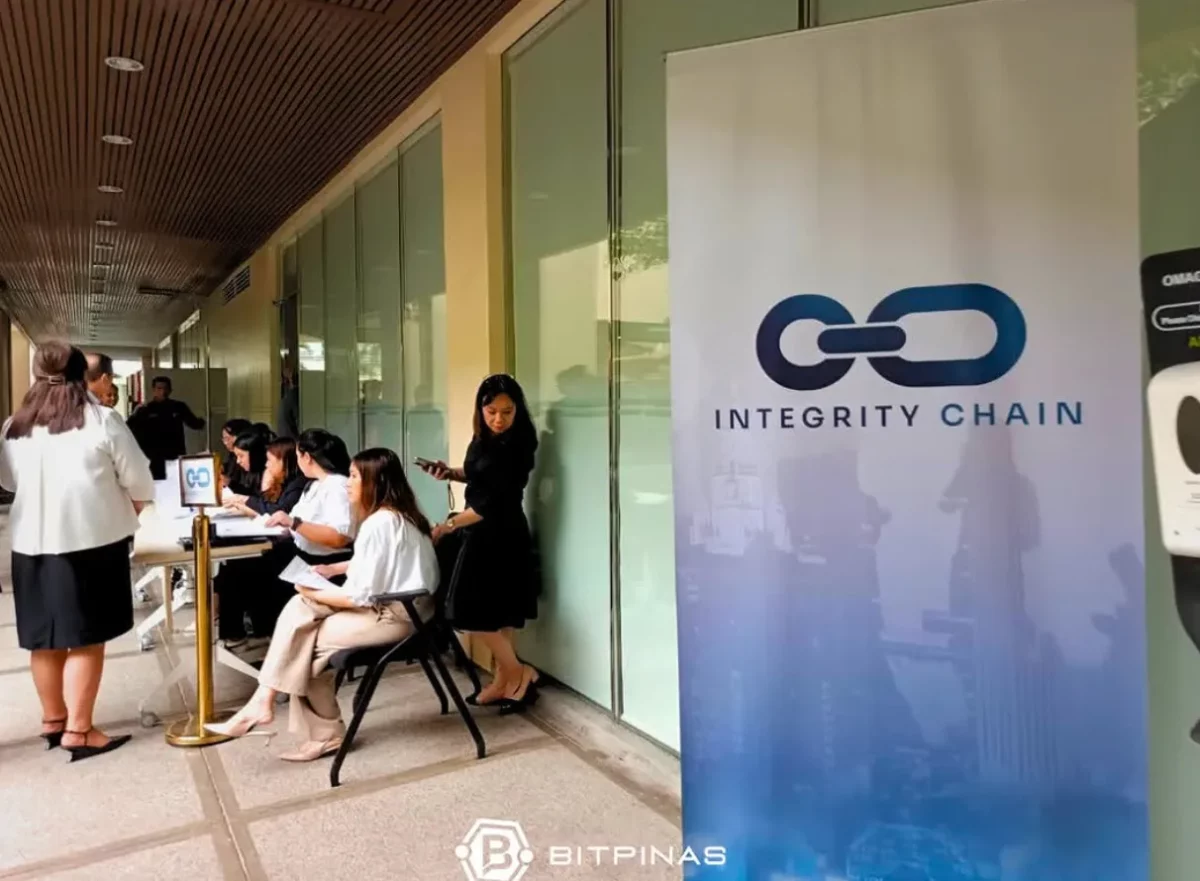COVERAGE: Integrity Chain Platform Officially Launched

SHARE
The spotlight this week is on governance and technology as the Department of Public Works and Highways (DPWH) and the Blockchain Council of the Philippines (BCP) unveiled Integrity Chain, a pioneering blockchain platform designed to monitor public infrastructure projects with unprecedented transparency.
This official launch marks a significant milestone, introducing a system that blends digital innovation with collective oversight to address one of the country’s most persistent challenges: corruption in public works.

For decades, stories of incomplete projects, misallocated budgets, and unchecked payments have fueled frustration among both officials and the public. During the launch, DPWH Secretary Vince Dizon recounted candid encounters with district engineers who admitted to releasing full payments despite unfinished contracts—an issue long emblematic of systemic failure. “No one’s watching,” Dizon remarked, highlighting how decentralized offices function like isolated kingdoms, handling everything from bidding to acceptance with little accountability.
Integrity Chain aims to disrupt that culture by creating a shared ledger where every stage of a project—budgeting, procurement, implementation, monitoring, and payment—is recorded and verified by multiple independent organizations. Unlike traditional blockchains validated by anonymous nodes, this initiative combines technology with a “human blockchain,” allowing outside groups to serve as active validators. The result is a model where it becomes far more difficult for irregularities to slip through unnoticed.

The pilot program, fully funded through a blind trust of private corporate contributions, will begin with foreign-assisted projects supported by the Asian Development Bank and the Japan International Cooperation Agency. These projects were chosen because of their more reliable baseline data, giving the technical team the opportunity to test protocols without the additional noise of already questionable records.
Over the next 60 days, the system will be closely monitored, with the first batch of results expected before the year ends. Technical working groups are establishing upload protocols, ensuring that contractors, district engineers, and oversight groups can log and validate transactions in real time. Officials emphasized that while the system may not eradicate corruption entirely, it will make misconduct exponentially harder to conceal.

DICT Secretary Henry Aguda underscored the agency’s role in providing technical expertise, while BCP Chair Donald Patrick pointed to the collective effort of more than 57 organizations—including business chambers and industry associations—that have pledged support. Funding will primarily go toward transaction fees, commonly known as blockchain “gas fees,” keeping the initiative lean but impactful.
“Integrity Chain is about technology and people working together,” Patrick explained. “It’s very hard to cheat when many are watching.” This ethos directly challenges the long-standing culture of secrecy in regional and district offices, where processes are often carried out behind closed doors.
As Congress deliberates on pending blockchain bills such as Senate Bill No. 1330 and multiple House counterparts, Integrity Chain serves as a proof-of-concept. Organizers believe its success could pave the way for institutionalizing blockchain as a cornerstone of public governance.
For now, the message is clear: the era of unchecked discretion in district offices may be coming to an end. With the eyes of both technology and civil society watching every step, Integrity Chain offers a glimpse of what accountability in infrastructure can—and should—look like.
Watch the videos to know more about the event!
*Cover Photo/Thumbnail Photo Taken by Gelo Gonzales
RELATED ARTICLES

Inside the Workflows of Young Professionals: How They Work Smarter, Create Faster, and Achieve More with the HUAWEI MatePad 11.5 S 2026

Crafting Comfort: Newest Dining Spots for Everyday Favorites

Experience Smartwatch-Level Features at a Band Price Point with the HUAWEI Band 11 Series—Coming March 3









